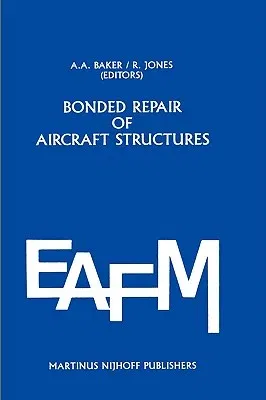Bonded Repair of Aircraft Structures (1988)Hardcover - 1988, 31 May 1988

Qty
1
Turbo
Ships in 2 - 3 days
In Stock
Free Delivery
Cash on Delivery
15 Days
Free Returns
Secure Checkout

Part of Series
Engineering Applications of Fracture Mechanics
Part of Series
Reason and Argument
Print Length
214 pages
Language
English
Publisher
Springer
Date Published
31 May 1988
ISBN-10
9024736064
ISBN-13
9789024736065
Description
Product Details
Book Edition:
1988
Book Format:
Hardcover
Country of Origin:
US
Date Published:
31 May 1988
Dimensions:
23.39 x
15.6 x
1.42 cm
ISBN-10:
9024736064
ISBN-13:
9789024736065
Language:
English
Location:
Dordrecht
Pages:
214
Publisher:
Weight:
503.49 gm